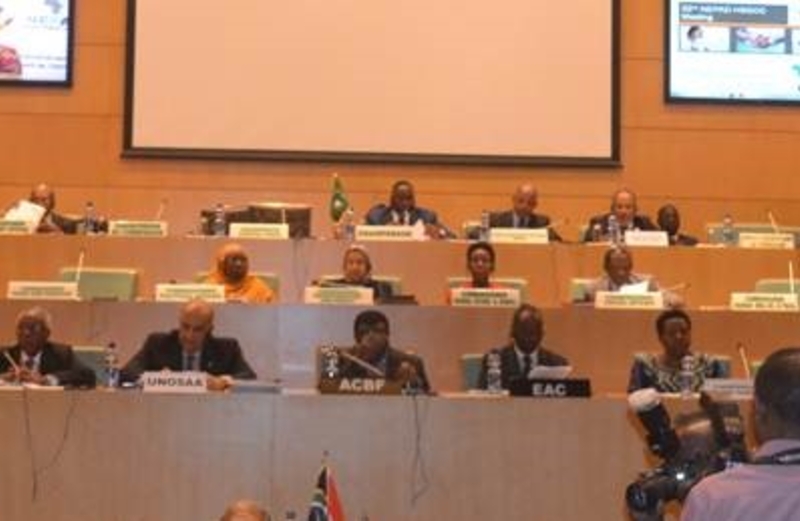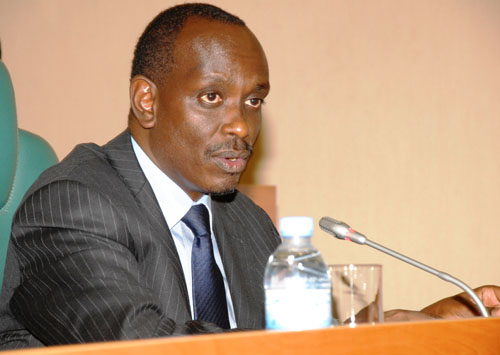African Heads of State endorse RECS Capacity Development Implementation Plan

African Heads of State and Government endorsed at the AU Assembly the RECs Capacity Development Implementation Plan, which spans from 2015 to 2025 and is based on the NEPAD Capacity Development Strategic Framework (CDSF).
The Plan aims to better capacitate Regional Economic Communities (RECs) to align their plans and strategies to current development frameworks such as Agenda 2063, and the Common African Position on the Post-2015 Development Agenda.
It mandates the NEPAD Agency, African Union Commission and RECs in partnership with other development partners such as the UN Development Programme (UNDP), Economic Commission for Africa (UNECA) and African Capacity Building Foundation (ACBF) to roll-out the Implementation Plan for institutional effectiveness and the effective delivery of regional programmes and projects.
NEPAD HSGOC members
In his report to the NEPAD Heads of State and Government Orientation Committee (HSGOC), NEPAD CEO Dr Ibrahim Mayaki highlighted: “We conducted an institutional capacity development assessment in all 8 AU recognised RECs under the Capacity Development support programme and designed the 2015 – 2025 RECs Capacity Development Implementation Plan to support the realisation of the 2nd Decade of NEPAD, the Post-2015 Agenda and the first 10 years of Agenda 2063.”

Secretary General of the East African Community (EAC) Dr Richard Sezibera (above) welcomed the outcomes of the Study facilitated by the NEPAD Agency and said that it has highlighted the bottlenecks of capacity development at the regional level. These include institutional development, reform of systems and processes, human resources development, knowledge management, and the mobilisation of resources.
Dr Sezibera emphasised that the roll-out of the RECs Capacity Development Implementation Plan will help RECs to better tackle these challenges and deliver on their mandate, so as to fast-track the implementation of regional development programmes and projects.
“Achieving Africa’s transformation will be greatly determined by the extent to which the African Union improves capacities of national and regional institutions, and puts in place the necessary skill-sets and the enabling environment,” he said.
He further noted that Africa’s transformation agenda should be people-centred and driven by the private-sector. Special attention should be paid to building the capacities of the youth, women and other vulnerable groups, and in particular of those affected by conflict.
Moving forward, he noticed that within the framework of the AU 2015 – 2025 Capacity Development Implementation Plan, there is need for support especially in four key areas. These are strengthening the coordination capacities of the RECs; developing an enforcement mechanism to ensure Capacity Development interventions bring about the desired impact; building coherent and coordinated systems for monitoring and evaluation; and promoting knowledge/experience sharing and learning platforms so as to nurture sustainability and continuous improvement.
